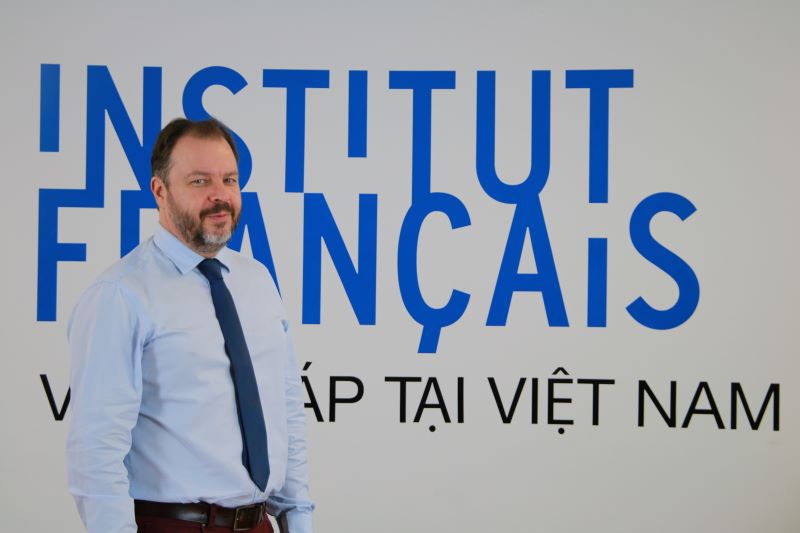Hanoi
Hanoi has great potential to become leading creative city in Asia
Jan 01, 2022 / 06:01 PM
Arriving in Hanoi a few months only before the covid-19 crisis, Thierry Vergon – Director of French Institute in Hanoi - L'Espace has a special time in the capital city.
He shared with The Hanoi Times about the reason he chose to work here as well as a project initiated by the Institute to turn the city's old industrial complexes into cultural hubs.
Can you share some about your decision to work in Vietnam?
I had already been traveling in South-East Asia, but never had the opportunity to visit Vietnam. I had already experienced living and working in Asia, about 15 years ago, and really liked it. But Tokyo is quite different from Hanoi, although it has some similarities if you compare it to Europe. I really wanted to come back to Asia but had no specific preference for any country. Then a member of my family had an opportunity to spend a few months in Hanoi as an intern, and he was so passionate when talking about his stay in Vietnam, that it became my first choice when applying to a new assignment.
There are so many things I love in the Vietnamese culture, that it would be difficult to select the most impressive. Nevertheless, I will try: I am so impressed by the richness and the diversity of the Vietnamese cuisine, how any small little street restaurant delivers inexpensive and tasty food and how easy it is to try tens of different local specialties.
It’s also similar things about Vietnam and France that the people can speak about food and cuisine while they eat. It is really something we share, the love for cooking, selecting the right products, enjoying sharing recipes, and of course, tasting the best food.
Hanoi was recognized as a UNESCO Creative City of Design in 2019 and committed to placing culture and creativity at the core of its sustainable development. How do you think about it?
A creative city has to be a breeding ground for the development of ecosystems of small businesses and creative organizations. To foster such organizations and small companies, the support of the local authorities is important as well as the support of national authorities and international players.
Hanoi could have all the potential to raise as a leading creative city in the region and supporting creative businesses and cultural innovation is certainly a good way to achieve this goal.
A project by the Vietnamese Institute of French named “Repurposing industrial heritage” project was released recently. Could you share more about it?
This project aims to create an open art and creative model space for Hanoi as an alternative to the dominant trend of removing industrial architecture heritage. The market dynamics of Hanoi have until now replaced factories from the last century with new commercial buildings.
In a context of shrinking spaces for the arts and unhindered development of cultural innovation, this bottom-up initiative is advocating to revalue remains of urban history for cultural incubating, start-ups, and new communities.
How do you evaluate the potentials to turn Hanoi's old industrial sites into cultural hubs? Are there similar projects in Paris or other French cities?
The project we are supporting aims at advocating a direction that has been favored on many occasions in France, in Europe, and in many cities around the World. For decades, local authorities, as well as central authorities, have chosen to repurpose industrial sites instead of destroying them.
Not only in Paris, but in all major cities as well as in rural areas, France has been repurposing many of its industrial sites. Tobacco factories, train stations, food production plants, warehouses or even power stations: all sorts of disaffected sites were given second lives - incubators for creative start-ups, centers for contemporary arts, concert halls, public libraries or restaurants result very often of these transformations when the largest sites are most of the time turned into eco-neighborhood where cultural and social activities are mixed with public gardens and parks, housing and commercial activities.
It is difficult to imagine France’s cultural landscapes without those projects, and the inhabitants of the neighborhood would certainly not imagine otherwise.
I think that the project, which aimed at strengthening the cultural life and the cultural organizations, can contribute to building the credibility and the international recognition of Hanoi as a creative city.












